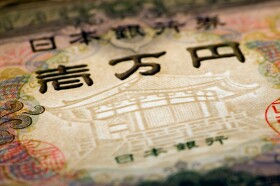It’s the end of the fiscal year for Japanese companies, and exporters are buying more to close things out. The result is that the Japanese yen is gaining against its major counterparts, helped along by the introduction of a certain amount of risk aversion on lackluster economic data from the United States and continued concerns about the eurozone.
Right now, as the fiscal year draws to a close, exporters are buying quite a bit. This means that the yen is gaining in strength against its counterparts. The financial year for many companies in Japan ends on March 31. So, even though there is usually a little more buying at the end of each month, that trend intensifies as the end of March draws near.
Additionally, yen is getting a little help from the fact that there are renewed economic concerns. US durable goods data was somewhat disappointing, and there are still leftover worries from Ben Bernanke‘s recent remarks about the US labor market. And, of course, there is some fallout from the insistence by the OECD that the eurozone firewall is insufficient.
Even though the yen is higher now, many expect that the strength will be short lived. The Bank of Japan recently eased monetary policy, and is likely to take measures to keep the yen weak.
At 13:15 GMT USD/JPY is down to 83.1000 from the open at 83.1770. EUR/JPY is lower at 110.6220, down from the open at 110.7650. GBP/JPY is lower at 132.0075, down from the open at 132.6850.
If you have any questions, comments or opinions regarding the Japanese Yen,
feel free to post them using the commentary form below.
